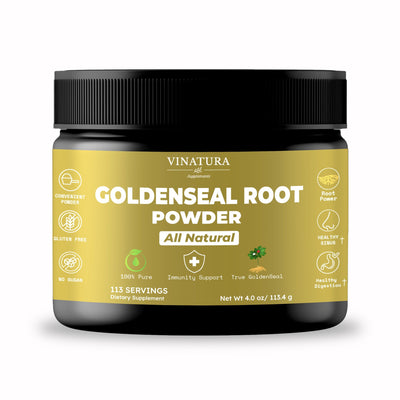
Can Diabetics Take Tongkat Ali? Studies & Benefits And Dosage
Diabetes can take Tongkat Ali as long as they have expert control and consultation because of its potential risk. This article will look into the studies and benefits of Tongkat Ali for diabetics and the recommended dosage to address the question “Can Diabetics take Tongkat Ali?”.
Before exploring further, please read the disclaimer located at the end of this webpage.
Key Takeaways
- Type 1 and Type 2 diabetes have different causes and treatments, with Type 2 being more common and linked to lifestyle factors.
- Tongkat Ali may help regulate blood sugar and improve insulin sensitivity, but effects vary and it should be used with medical advice.
- Diabetics should consult their doctors before taking Tongkat Ali due to possible interactions and unpredictable effects on blood sugar.
Distinguish Diabetic Type 2 and Type 1
To better comprehend the impact of Tongkat Ali on individuals with diabetes, it is important to first grasp the various types of diabetes. This understanding will contribute to your overall knowledge of “Can Diabetics take Tongkat Ali?”.
Type 1 diabetes and Type 2 diabetes are two distinct forms of diabetes mellitus, each with its characteristics regarding onset, causes, and therapy.
Type 2 diabetes is more popular in nearly 90% of people suffering from the disease, while the remaining is type 1.
Both type 1 and type 2 diabetes are a condition in which blood sugar levels in the body increase, causing damage to many organs.
Although these two diseases partake in some common symptoms and diagnoses, there are still some features that help distinguish them from effective antidotes.
Diabetes Type 1
Type 1 diabetes, formerly known as insulin-dependent diabetes, is a disease that destroys the beta cells of the pancreatic islets (insulin-concealing cells), causing insulin deficiency and taking patients to use insulin outside of their body.
Type 1 diabetes often develops suddenly, typically in childhood or adolescence, but it can occur at any age [1].
A comprehensive approach to type 1 diabetes requires a combination of diet, exercise and usage of insulin injections.
Diabetes Type 2
Type 2 diabetes is caused by the body not being able to use insulin or not using insulin as effectively as normal.
As a result, the sugar is not completely metabolized but remains in the blood.
Older people are usually susceptible to type 2 diabetes. The disease is getting younger and younger, many children and teenagers are contracting this disease, mainly due to being overweight, obese, and less exercise.
Diabetic type 2 needs to follow the same diet and exercise guidelines as for diabetic type 1 to medicate the disease.
However, if type 2 diabetes has not progressed seriously, it may use medications to help control blood sugar levels.

Can Diabetics Take Tongkat Ali?
Diabetics can take Tongkat Ali as long as they have expert control and consultation from their doctors. Responses to herbal supplements can vary widely among individuals. People with diabetes often have unique health considerations, and the impact of herbal supplements can be unpredictable.[2]
Although Tongkat Ali may interact with medications, including those prescribed for diabetes, it’s not like diabetics can’t use it.
On the contrary, Tongkat Ali might work to reduce blood sugar levels through the following mechanisms:
- Reduces the rate at which glucose is absorbed from the intestines into the blood, helping to prevent blood sugar levels from rising too high, especially after eating.
- Stimulates pancreatic beta cells to work more effectively and produce more insulin [5].
- Increases insulin sensitivity and activity in the body.
However, the level of absorption depends on each person's physical condition and the ability of Tongkat ali to improve diabetes will vary.
You may also like: Does Tongkat Ali Cause Hair Loss? Does It Increase DHT Levels?
Benefits of Tongkat Ali for Diabetics
According to some studies, the medicinal ingredients in the plant help stimulate beta cells in the pancreas to produce more insulin and reduce the absorption of glucose in food when taken into the body.
However, it still depends on each person's constitution. Besides, Tongkat Ali brings a lot of advantages to be considered:
Blood Sugar Regulation
Additionally, several recent studies show that men using Tongkat Ali not only increased testosterone levels but also significantly reduced stress-causing cortisol levels [6].
Some research suggests that Tongkat Ali may have effects on blood sugar levels. Some animal studies have shown potential hypoglycemic (blood sugar-lowering) effects.
Anti-Inflammatory Properties
Tongkat Ali may have anti-inflammatory effects. Chronic inflammation is associated with various health conditions, including diabetes [7].
Possibility for Improved Energy
Tongkat Ali is inherently cool and can reduce stress. Because this plant contains a large amount of anxiolytics that help relax the mind and reduce anxiety.
Restore Hormonal Balance
Tongkat Ali is often marketed as an aphrodisiac and testosterone booster [8]. Hardship managing blood sugar levels can lead to some health complications.
Continually fluctuating blood sugar levels can damage blood ships and nerves, which play an important role in sexual stimulation.
Tongkat Ali Dosage for Diabetics
If you have diabetes, closely monitor your blood glucose levels and follow the usage advice on how to take Tongkat Ali. The supplement may have effects on blood sugar, and regular monitoring can help assess its impact.[3]
Recommended Dosage
- For normal adult people: take 200 - 400 mg/day, after meals.
- For diabetics: take 100 - 150 mg/day.
It's often recommended to start with a low dose when introducing a new supplement with your doctor's consultation.
Attention
For adults only. Consult your health care professional before using this or any product if you are pregnant or nursing, or have other health problems.
Explore more: Does Tongkat Ali Affect Blood Pressure? What Does Science Say?
Conclusion
In conclusion, Tongkat Ali may offer some potential benefits for individuals with diabetes, but it is not a substitute for proper medical treatment and should be used with caution.
Diabetics can take Tongkat Ali as long as they have proper consultation and monitoring from their doctors.
Although it may have potential benefits for individuals with diabetes, the effects can vary widely and should be closely monitored.
Additionally, maintaining a healthy diet and exercise routine is crucial in managing diabetes effectively.
Related Articles:
- Best Tongkat Ali Supplements 2024: Forms & Price And Origin
- Tongkat Ali Side Effects Liver - Cautions And Notable Dosage
References
- [1] Ichinose, K., Kawasaki, E., & Eguchi, K. (2007). Recent Advancement of Understanding Pathogenesis of Type 1 Diabetes and Potential Relevance to Diabetic Nephropathy. American Journal of Nephrology, 27(6), 554–564. https://doi.org/10.1159/000107758
- [2] Shaheed Ur Rehman, Kevin Kyungsik Choe, & Hye Hyun Yoo. (2016). Review on a Traditional Herbal Medicine, Eurycoma longifolia Jack (Tongkat Ali): Its Traditional Uses, Chemistry, Evidence-Based Pharmacology and Toxicology. Molecules, 21(3), 331–331. https://doi.org/10.3390/molecules21030331
- [3] Ching Hao Li, Jiunn Wang Liao, Po Lin Liao, Huang, W., Ling Shan Tse, Cheng Hui Lin, Jaw Jou Kang, & Yu Wen Cheng. (2013). Evaluation of Acute 13-Week Subchronic Toxicity and Genotoxicity of the Powdered Root of Tongkat Ali (Eurycoma longifoliaJack). Evidence-Based Complementary and Alternative Medicine, 2013, 1–11. https://doi.org/10.1155/2013/102987
- [4] Srikanth Bellary, Ioannis Kyrou, Brown, J. E., & Bailey, C. J. (2021). Type 2 diabetes mellitus in older adults: clinical considerations and management. Nature Reviews Endocrinology, 17(9), 534–548. https://doi.org/10.1038/s41574-021-00512-2
- [5] Reviews of articles on medicinal herbs. (2014). Australian Journal of Herbal Medicine. https://search.informit.org/doi/abs/10.3316/INFORMIT.834599231766240
- [6] Talbott, S. (2013). Human Performance and Sports Applications of Tongkat Ali (Eurycoma longifolia). Elsevier EBooks, 501–505. https://doi.org/10.1016/b978-0-12-396454-0.00053-9
- [7] Lee, E. L., & Barnes, J. (2022). Tongkat Ali/Long Jack. Journal of Primary Health Care. https://doi.org/10.1071/hc22143
- [8] The Ranking of Tongkat Ali Plants to Boost Testosterone Hormone Evaluated in both In vitro and In vivo Experiments. (2023). Tropical Journal of Natural Product Research, 7(11). https://doi.org/10.26538/tjnpr/v7i11.31
Author

Product Disclaimer
The dietary supplement products mentioned on this website are formulated based on scientific research and adhere to FDA guidelines for dietary supplements. However, the content of the articles has not been evaluated by the Food and Drug Administration (FDA) and is not intended to promote or endorse any specific product. Any products sold on this website are not intended to diagnose, treat, cure, or prevent any disease.
Opinions and Endorsements
Any claims, statements, or opinions expressed in the articles are those of the author(s) and do not necessarily reflect the views or opinions of the manufacturers of the dietary supplement products. The products sold on this website are separate from the content of the articles and are not directly endorsed or associated with the information presented here.
Liability Disclaimer
The author(s) of the articles, website, and manufacturers of the dietary supplement products do not assume any liability for any potential consequences arising from the use of the information provided in the articles. It is recommended that individuals consult with a qualified healthcare professional before making any dietary or lifestyle changes, including the use of dietary supplements.
Product Usage
Please refer to the product labels and packaging for specific usage instructions and guidelines for the dietary supplement products sold on this website.
Customer Support
For any concerns or questions regarding the dietary supplement products, please contact our customer support team, who will be more than happy to assist you.







Leave a Comment
Be the first to comment.
What do you think?